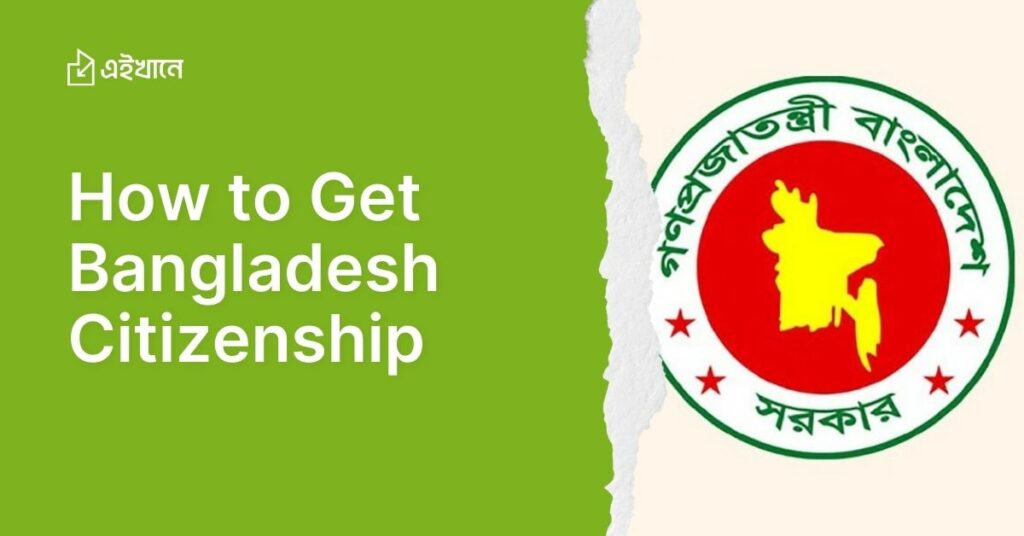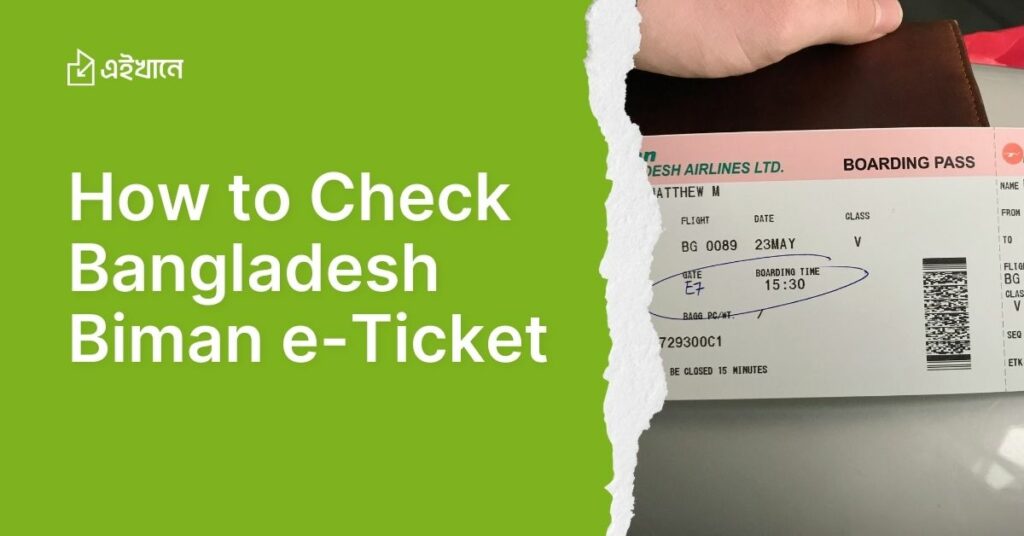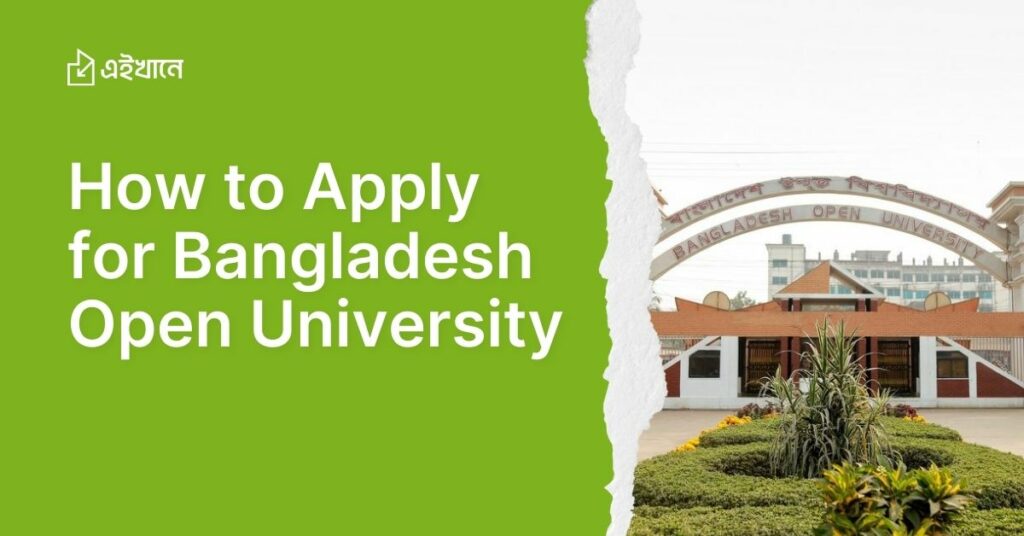Complete Guide: Steps to Obtain Bangladesh Citizenship Through Naturalization
Eligibility Criteria for Naturalization
To apply for citizenship by naturalization, you must meet specific eligibility criteria as outlined by the Bangladesh Citizenship Act. This includes residing in Bangladesh for a minimum continuous period of 5 years (if foreign-born) or 2 years (if married to a Bangladeshi citizen). Applicants must also be of good character, have a basic understanding of the Bengali language, and show loyalty to the constitution and laws.
Documentation Required for Naturalization
A set of documents is mandatory when applying for naturalization. You will need to submit proof of residence, birth certificate, passport copies, police clearance certificate, evidence of legal income, and, if applicable, a marriage certificate. All documents must be properly attested and translated into Bengali if they are originally in another language.
Application Submission Process
Once all necessary documents are gathered, you must complete the official application form available from the Ministry of Home Affairs or the Department of Immigration and Passports. Submit the filled-out form along with the required documentation to the designated regional office. It is advisable to keep copies of all submitted documents for personal reference.
Security and Background Check
After submitting your application, it will go through a thorough vetting process. Security agencies, including the police, will conduct background checks to verify your residence, employment, and overall conduct. Any discrepancies found could lead to delays or denial of your application.
Language and Knowledge Test
As part of the naturalization process, candidates are generally required to pass a basic test in Bengali language and culture. This ensures that you can integrate into Bangladeshi society effectively. The test evaluates your ability to communicate in Bengali and your knowledge of the country’s history, constitution, and government institutions.
Decision and Oath-Taking Ceremony
Once the authorities complete all necessary checks and approve your application, you will receive an official notification to attend an oath-taking ceremony. During this ceremony, you must take an oath of allegiance to Bangladesh. After completing this step, you will receive your certificate of citizenship, officially making you a naturalized citizen of Bangladesh.
Post-Citizenship Rights and Obligations
As a newly naturalized citizen, you will have the right to vote, run for public office, and access social services, among other rights enjoyed by native citizens. However, you must also fulfill duties such as paying taxes, adhering to laws, and participating in national development initiatives.
Bangladesh Citizenship: Documents Required and Application Process Explained
Required Documents for Citizenship Application
To successfully apply for Bangladesh citizenship, you must provide a comprehensive list of documents. These generally include proof of your identity such as birth certificate, passport, and a national ID card (if applicable). You will also need to submit evidence of your legal residency in Bangladesh, employment records, a police clearance certificate, and a recent photograph. Marriage certificates may be necessary when applying based on marriage to a Bangladeshi citizen. All documents must be properly attested and translated into Bengali if required.
Proof of Residency and Employment
Demonstrating continuous residence in Bangladesh is crucial for your citizenship application. Typically, applicants must provide utility bills, tenancy agreements, land deeds, or other official records showing legal residence over the required period of time. Additionally, employment records, such as a work permit, employment contract, or tax return documents, help establish that you have a legitimate source of income within Bangladesh and contribute to society through lawful means.
Police Clearance Certificate
A Police Clearance Certificate is an essential document, ensuring that applicants have no criminal history or pending cases within Bangladesh. This certificate must be obtained from the relevant local police station where the applicant resides. It’s advised to request this early since processing can take time, and any discrepancies found may impact your eligibility to obtain citizenship.
Application Form and Submission
The Bangladesh Citizenship application form can be obtained from the Ministry of Home Affairs or the Department of Immigration and Passports. The form must be carefully filled out, providing accurate personal details. Once completed, along with all supporting documents, it needs to be submitted to the relevant regional office. It’s also important to keep a set of copies for future reference and convenience, should any follow-up clarification be needed.
Verification and Background Check
After submission, your application will undergo a series of checks. Authorities will review the information provided and verify it through security agencies. Extensive background checks will be conducted, including interviews with your neighbors or employers. This process ensures that all details are genuine and evaluates whether you meet the criteria for becoming a responsible Bangladeshi citizen.
Processing Time
The citizenship application review can take several months depending on your specific case. While there is no fixed timeline, factors such as the completeness of your documentation and the background check findings may influence how quickly a decision is made. Applicants are advised to regularly check in with the authorities handling their case and be prepared to submit additional documents if requested.
Final Approval and Oath of Allegiance
Once the documents and background checks are finalized, the application will be approved if all conditions are satisfied. Successful applicants are required to attend an official oath-taking ceremony, affirming their loyalty to Bangladesh. After taking the oath, you will receive your citizenship certificate, officially making you a citizen of Bangladesh.
Appeal Process for Denied Applications
In cases where applications are denied, applicants have the right to appeal the decision. You may submit additional supporting documents or clarify issues that led to the denial. Sometimes, rejections occur due to administrative errors or incomplete documents, which can be rectified during the appeal process.
Marriage to a Bangladeshi: Path to Citizenship and Legal Requirements
Eligibility for Citizenship Through Marriage
Foreign nationals married to Bangladeshi citizens can apply for citizenship through a streamlined process. According to the Bangladesh Citizenship Act, you must reside in Bangladesh for at least two years following your marriage to be eligible. Additionally, the marriage must be legally recognized under Bangladeshi law, and both spouses should provide proof that the relationship is genuine and ongoing.
Documentation Required for Spousal Citizenship
When applying for citizenship based on marriage to a Bangladeshi, specific documentation is required. These include a copy of your spouse’s National ID, a legal marriage certificate, proof of your residence in Bangladesh, and a police clearance certificate from your home country. Proof of joint assets or shared financial responsibilities may also be requested to further validate the marriage.
Residency Requirements
Applicants must demonstrate continuous residence within Bangladesh for at least two years after marriage to a Bangladeshi citizen. Evidence such as rental agreements, utility bills, or land deed documents should be submitted to confirm your residency. Additionally, authorities may conduct visits or interviews to ensure compliance with this requirement.
Application and Submission Process
The application for citizenship through marriage is submitted through either the Ministry of Home Affairs or the Department of Immigration and Passports. The form must be filled out accurately and submitted with all necessary documents, including the marriage certificate and proof of residency. Incomplete applications or errors could result in delays in processing or even denial.
Background Checks and Marital Verification
After submitting your application, a detailed background check will be conducted. Authorities may interview neighbors, verify your place of residence, and review your financial arrangements to confirm the validity of the marriage. Both spouses should expect to provide additional information or attend an interview if requested by the immigration officials.
Potential Challenges and Denials
Although citizenship through marriage provides a more direct path, challenges can emerge if there are discrepancies in documentation or proof of the marital relationship. Denial could occur due to insufficient evidence of residency or marriage fraud. In such cases, applicants can appeal and provide further documentation to address the issues raised during the initial review.
Oath of Allegiance and Citizenship Certificate
Once your application is approved, you will be required to take an oath of allegiance to Bangladesh. After the oath-taking ceremony, you will receive your official certificate of citizenship. This grants you full rights as a citizen, including the ability to vote, own property, and engage in political activities.
Investment Options for Foreign Nationals Seeking Bangladesh Citizenship
Economic Investment as a Pathway to Citizenship
Foreign nationals who wish to acquire Bangladeshi citizenship through investment often consider economic contributions as an option. Bangladesh offers several opportunities for investors, including sectors like real estate, manufacturing, and infrastructure. While the country doesn’t have an explicit “citizenship-by-investment” program, individuals who contribute significantly to the economy and meet all relevant legal criteria may receive favorable consideration in their citizenship applications.
Real Estate Investment Opportunities
One of the most attractive options for foreign nationals is investing in the local real estate market. Bangladesh has seen rapid urbanization in recent years, particularly in cities like Dhaka and Chittagong, providing ample opportunities for commercial and residential property investments. Foreigners can invest in housing projects or buy property under certain conditions, which may help establish eligibility for citizenship by supporting long-term residence and economic contribution.
Investment in Local Industries
Bangladesh’s growing economy presents opportunities in various industries such as textiles, garments, agriculture, and energy. By establishing or investing in a business, foreign nationals not only contribute to the country’s development but also create employment opportunities, which could improve their citizenship prospects. Substantial investments in key sectors demonstrate commitment to the Bangladeshi economy, making the applicant a valuable contributor to the nation.
Bank Deposits and Government Bonds
For those seeking safer investment routes, substantial bank deposits or investments in government bonds are viable options. The Bangladesh government may look favorably on individuals who make significant financial contributions that bolster the country’s economy and financial stability. Although there are no formal guarantees that such investments will directly lead to citizenship, they offer a strong foundation for demonstrating long-term financial commitment to the country.
Taxation Benefits for Foreign Investors
Bangladesh offers tax incentives to foreign investors in critical industries, especially in Export Processing Zones (EPZs) where tax holidays, exemptions from income taxes, and duty-free imports are provided. By taking advantage of these benefits, foreign investors can maximize their financial returns while potentially bolstering their case for citizenship through active contributions to Bangladesh’s growth sectors.
The Importance of Legal Counsel
Obtaining citizenship in Bangladesh through investment can be a complex process involving numerous legal considerations. Working with experienced legal counsel is strongly advised to navigate investment laws, ensure compliance with regulatory frameworks, and prepare a compelling case for citizenship. Legal advisors can also help identify the best investment strategies that align with Bangladesh’s immigration policies and your citizenship goals.
Dual Citizenship in Bangladesh: Eligibility and Application Guidelines
Eligibility Criteria for Dual Citizenship
Bangladesh allows dual citizenship but only under specific conditions. Generally, citizens of Bangladesh who move to certain countries and adopt citizenship there may be eligible to retain both nationalities. Countries where dual citizenship is permitted include the USA, UK, Canada, and EU nations. However, people who obtain citizenship in non-permitted countries must renounce their Bangladeshi nationality. To qualify for dual citizenship, you must be a former Bangladeshi citizen by birth or descent and have acquired foreign citizenship from a permitted country.
Required Documentation for Dual Citizenship
When applying for dual citizenship, you are required to submit a well-documented application. Necessary documents include proof of your Bangladeshi origin, such as a valid passport, national ID, or birth certificate. You also need to provide evidence of your foreign citizenship, which can include your foreign passport and citizenship certificate. Additional documents like proof of residence in the foreign country and marriage certificates (if applicable) are typically requested. All documentation must be properly attested and translated into Bengali if required.
Application Submission Process
The application for dual citizenship is processed by the Ministry of Home Affairs in Bangladesh. You will need to complete the Dual Nationality Application Form, which is available from Bangladesh missions abroad or local government offices within the country. Along with submitting the form, furnish all required documents and pay the necessary fees. Depending on your location, you may submit the application either at a Bangladeshi consulate abroad or at a relevant government office in Bangladesh.
Background Checks and Processing Time
Once you have submitted your application for dual citizenship, it will undergo background checks by concerned authorities. The process involves verifying your identity, checking records for any criminal activities, and assessing if you meet the eligibility criteria. The processing time can vary depending on the complexity of the case and the quality of the submitted documents. While timelines are not fixed, it usually takes several months for the application to be fully processed.
Approval and Receiving the Certificate of Dual Nationality
If your dual citizenship application is successful, you will be notified via official communication (e.g., letter or email). You’ll then be required to attend a formal meeting at your nearest Bangladeshi consulate or government office to receive your Certificate of Dual Nationality. Once you receive this certificate, you’re officially recognized as holding dual citizenship, thereby enjoying the rights and obligations of a Bangladeshi citizen alongside your foreign citizenship.
Rights and Restrictions Under Dual Citizenship
While holding dual citizenship provides a range of benefits such as the right to reside in Bangladesh and own property, there are some restrictions. Dual citizens cannot hold certain political offices like Member of Parliament, Prime Minister, or President. Additionally, dual citizens are still bound by laws regarding taxes and any legal obligations in both countries. It’s important to understand the limitations and responsibilities that come with dual nationality, ensuring you remain compliant with both nations’ legal requirements.
Renouncing Dual Citizenship
If you wish to relinquish your Bangladeshi nationality while holding dual citizenship, there is a formal renunciation process. This can be done by submitting an application to the Ministry of Home Affairs, stating your intent to renounce. You will need to provide your Bangladeshi passport, national ID card, and proof of your foreign citizenship. Once the renunciation process is completed, you will lose all the rights associated with being a Bangladeshi citizen.


